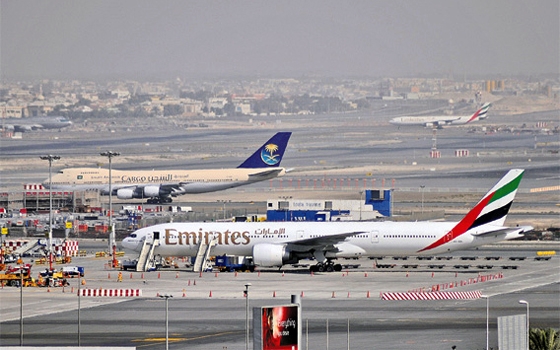Middle East carriers, led by GCC airlines, continued to post the world’s strongest growth rates for the sixth consecutive month in 2014 for international passenger demand, International Air Transport Association (IATA) data revealed.
During the first six months of the year, global passenger traffic demand witnessed single-digit growth while Middle Eastern carriers continued double-digit growth. International passenger demand in June rose 5.5 per cent compared to the same month last year, with airlines in all regions except Africa recording growth and the strongest gains among Middle East carriers. Capacity climbed 5.7 per cent and load factor dipped 0.2 percentage points to 81.4 per cent.
Demand among Middle East carriers jumped 10.8 per cent in June, the largest increase for any region, reflecting the continued strength of regional economies and solid growth in business-related premium travel. Capacity climbed just 5.9 per cent, propelling load factor up 3.7 percentage points to 82.1 per cent, IATA said in a statement.
Despite some tapering off in demand, the double-digit growth seen in the GCC remains robust, a senior analyst says. The strong growth continued even as the busiest international GCC airport, in Dubai, underwent runway upgrades. Passengers were not put off travelling or from using the new Al Maktoum International Airport.
“Its clear that the global proliferation of routes, new services and more lower fares are stimulating passenger demand and we’ll continue to see that demand rising as 2014 comes to a close,” Saj Ahmad, chief analyst at London-based StrategicAero Research, told Khaleej Times.
Globally, total revenue passenger kilometers (RPKs) rose 4.7 per cent over the year-ago period, which was below the 6.2 per cent year-on-year increase recorded in May 2014. June capacity (available seat kilometers or ASKs) increased by 5 per cent, causing load factor to slip 0.2 percentage points to 81.5 per cent.
“Demand for air travel and the connectivity it provides remains strong. But uncertainty in the global political and economic climate has the potential to negatively impact demand. Risk is today’s reality, whether it’s conflict in the Middle East, sanctions and an impending trade war with Russia, possible default in Argentina or the Ebola outbreak in Western Africa. All have the potential to dent demand. We are optimistic that the industry will still end the year with an improvement in profitability over 2013. But the regional impact of some of these risks will challenge some airlines more than others,” said IATA’s director general and CEO, Tony Tyler.
“One of the biggest regional challenges could be Ebola. Travelers should be reassured that airlines are coordinating closely with the World Health Organisation (WHO) and the International Civil Aviation Organization (ICAO). WHO currently advises that the risk to travelers is low and is not recommending travel restrictions or border closings. If, however, a passenger feels unwell it is always advised that they seek the advice of a doctor before traveling,” Tyler said.
Khaleej Times
9 August
























































